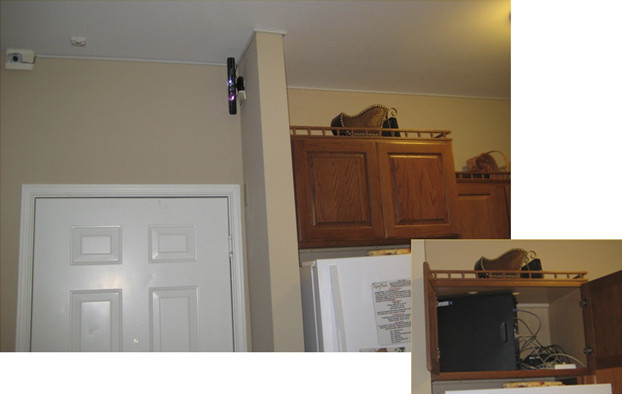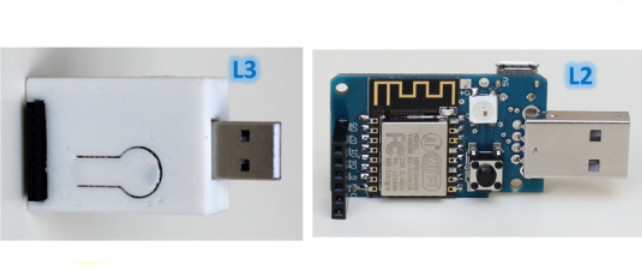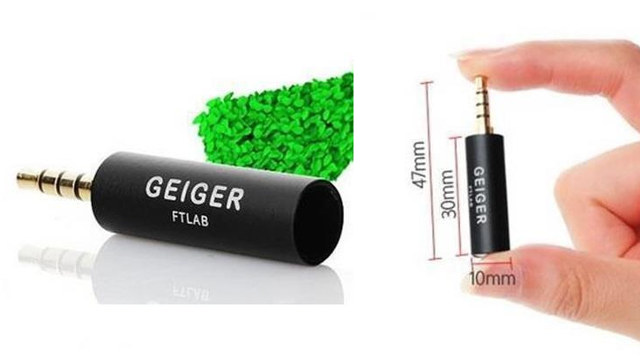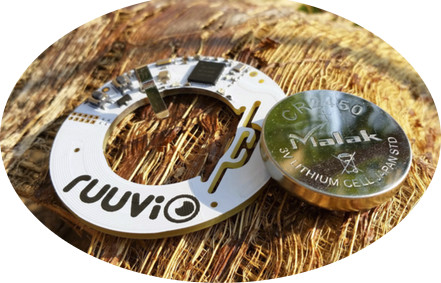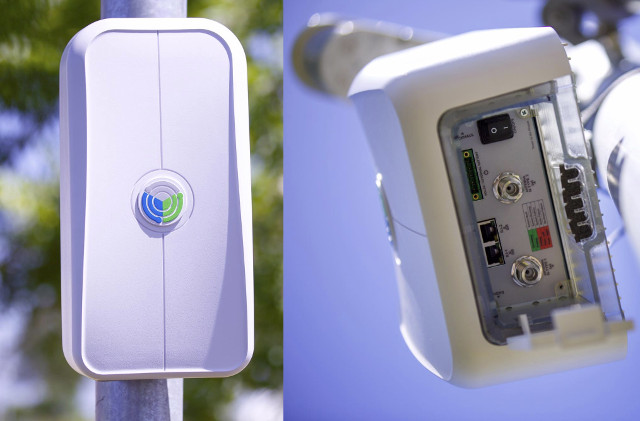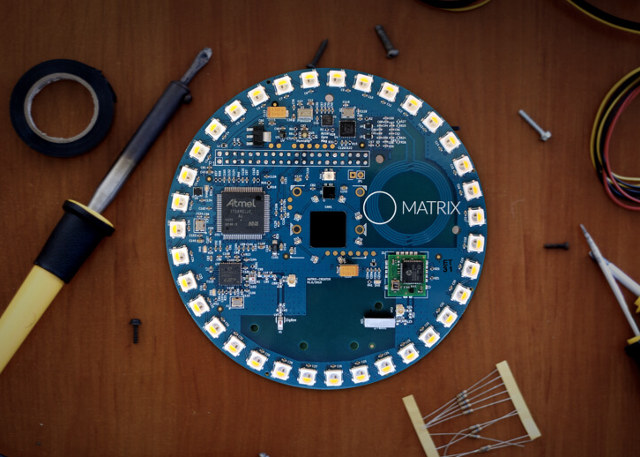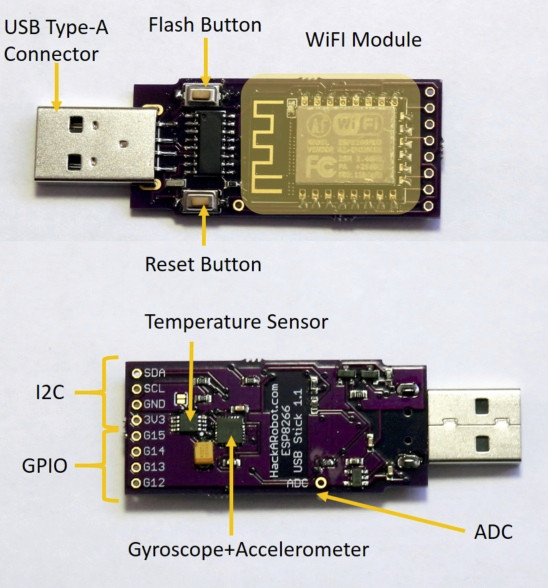ZTE launched CSX Project last month in order to design a smartphone or other consumer product based on input from the community. People submitted ideas last month, and voted for the best ideas at the beginning of September, and the results are now in. There used to be a popular proposal to make a ZTE Ubuntu phone, but for some reasons since they may make one anyway, this has not been selected by the jury, and instead the three winning ideas are: Self-Adhesive Smartphone with Optimized User Interface via Eye Tracking System and Split Screen Technology Powerglove (Android application control of hands) VR – Interactive diving mask The first solution had by far the most votes, and the main purpose is to use the phone without touching it. Two laser-focused front cameras would track the eye movement to let the user scroll the screen with eye, while it’s been stuck […]
Sensors Predicting The Future – Elderly Persons Fall Prediction and Detection with Kinect, Webcams and Microphones
Wearables can be used your young children or elderly persons to monitoring their locations or health, and one use case, especially for old age persons, is to detect falls. However, it’s quite possible they don’t like it and/or not always wear it, so the Center for Eldercare and Technology of the University of Missouri designed a system based on Microsoft Kinect, two webcams, and microphones in order to detect falls, and even predict falls by analyzing gait, i.e. the pattern of movement of the limbs. The picture above shows at least part of the hardware setup with the Kinect, a webcam, and a PC tower doing the processing stored in a cupboard. Fall detection algorithms are relying on the microphone array, Microsoft Kinect depth camera, and a two-webcam system used to extract silhouettes from orthogonal views and construct a 3D voxel model for analysis. Passive gait analysis algorithms are for […]
vESPrino ESP8266 USB WiFi Dongle Supports Add-on Boards (Crowdfunding)
Last month, I wrote about WiThumb a USB WiFi adapter based on ESP8266 processor which can conveniently be plugged into any USB port for power and programming. However, the hardware design was questionable with the WiFi PCB antenna placed close to other components, and a temperature sensor likely to get pretty hot inside the case. There’s now another device based on a similar concept with vESPrino USB stick that also expose a few I/Os through its enclosure. ESPrino specifications: WiFi module – ESP-12 FCC & CE Certified module based on Espressif ESP8266 USB – 1x micro USB port, 1x USB port Expansion – 6-pin female header with 4 GPIOs, 5V and 3.3V Programming & debugging – Via USB through CH340G USB 2 Serial adapter Misc – Push button (GPIO0), WS2812b RGB LED (GPIO2), temperature sensor connected to ADC? (not visible on schematics) Power Supply – 5V through micro USB or […]
FTLAB FSG-001 is a $30 Geiger Counter / Radiation Detector for Android & iOS Smartphones
I’ve just read an article on Tizen.org about Samsung and Intersoft Eurasia’s collaboration about a “personal radiation monitoring device DO-RA” sending data over Bluetooth 4.0 LE. But a visit to their website showed other models such as DO-RA-Q using a 3.5mm audio jack, and compatible with smartphones, and Windows & Linux computers. I could not find any of their devices for sale, so I searched for alternatives and found FTLAB FSG-001 radiation counter on Aliexpress, Amazon, and eBay selling between $30 and $40. FTLAB FSG-001 Geiger counter specifications: Radiation measurement of: gamma, X-rays Measurement range – 0.1 to 200 μSv/h Measurement error – <30% within a given deviation between Dimensions – Φ10 x 30 mm (total length: 47mm with 3.5mm audio jack) Weight – 6 grams Operating temperature – 10 to 40 ℃ You’ll need to plug the dongle into your smartphone audio jack, and download FTLAB “SmartGeiger” app for […]
RuuviTag Open Source Bluetooth & NFC Sensor Beacon is Based on Nordic Semi nRF52832 SoC (Crowdfunding)
I’ve recently featured Puck.js Bluetooth 4.2/5.0 Beacon on CNX Software, but there’s another similar option with RuuviTag, also powered by the latest Nordic Semi nRF52832 ARM Cortex-M4 SoC, and RuviiTag+ version that includes multiple sensors: 3-axis accelerometer, and temperature, humidity, and pressure sensor. RuuviTag & RuuviTag+ specifications: SoC – Nordic Semi nRF52832 ARM Cortex-M4F micro-controller @ 64 MHz with Bluetooth Smart and NFC Connectivity Bluetooth 4.2 Smart, Bluetooth 5.0 Ready; over 500 meters line of sight range (with -4dBm power); up to 1.4 km with +4 dBm Integrated NFC antenna Expansion – 8x through holes with 6x GPIOs, and 2x power signals Sensors On-chip temperature sensor RuuviTag+ – Bosch BME280 environmental sensor (pressure, humidity, and temperature), STMicro LIS2DH12 3-axis accelerometer Misc – User/reset button, 2x LEDs, 10-pin SWD debug connector Battery – CR2450 / CR2477 battery up to 10 years depending on application Dimensions – N/A Temperature Range – -40°C […]
OpenCellular is Facebook’s (soon to be) Open Source Wireless Access Platform
A few months after Canonical and Lime Micro LimeSDR open source software defined radio aiming to be used as a development platform, but also as the base for low cost cellular or other wireless base stations, Facebook has announced their own open source wireless access platform with OpenCellular project whose goal is to lower the cost of Internet connectivity in remote areas where the infrastructure does not exist. This is how Marc Zuckerberg summarizes the project: We designed OpenCellular as an open system so anyone — from telecom operators to researchers to entrepreneurs — can build and operate wireless networks in remote places. It’s about the size of a shoe box and can support up to 1,500 people from as far as 10 kilometers away. Along with our solar-powered aircraft Aquila and high-bandwidth laser beams, OpenCellular is the next step on our journey to provide better, more affordable connectivity to […]
$99 MATRIX Creator Raspberry Pi Add-on Board Features Plenty of Sensors, a 2.4 GHz Radio, and More
MATRIX Creator is a round-shaped add-on board for Raspberry Pi boards with various sensors, a microphone array, an LED array, a Xilinx FPGA, an Atmel Cortex-M3 MCU, wireless connectivity via Z-Wave, ZigBee, Thread, and NFC, as well as various I/Os…. MATRIX Creator specifications: FPGA – Xilinx Spartan 6 FPGA MCU – Atmel ATSAM3S2C Cortex-M3 MCU Connectivity – ZigBee, Thread, Z-Wave and NFC Sensors – Ultraviolet, pressure, humidity, temperature, 3D accelerometer, 3D gyroscope, 3D magnetometer Audio – 8x MEMs microphone array with Alexa support Expansion – 2x ADC, 17x digital GPIOs, SPI, I2C, UART; 40-pin connector for Raspberry Pi 2/3 Misc – 35x RGBW LEDs array, IR Rx/Tx, infrared ring for the Raspberry Pi NoIR camera I can’t think of the single application that would make use of all features of this board, but the least we can say is that it’s extremely versatile. The developers are providing MATRIX OS based […]
WiThumb is an ESP8266 WiFi USB Adapter with Motion and Temperature Sensors (Crowdfunding)
There are now plenty of Espressif ESP8266 boards or module to play with, but most of them require some cables or wires, at least for power. WiThumb does not need any of that as it’s designed to be plugged into any USB ports, and includes a 6-axis motion sensor, and a temperature sensor. WiThumb USB dongle specifications: SoC – Espressif ESP8266 32-bit MCU with 802.11b/g/n WiFi Storage – 4MB Flash memory Sensors – Temperature sensor (+/- 0.25C typical accuracy, -40 to 125 C range), 6-axis gyroscope + accelerometer Expansion – Breadboard friendly through holes with 1x 10-bit ADC, I2C and 4x GPIOs USB – USB type A connector Misc – Reset and flash buttons Power – 5V via USB port Dimensions – 4.8 x 2.2 cm The USB stick can be programmed like most ESP8266 board, i.e. via USB using the Arduino IDE. In case you wonder what kind of […]


